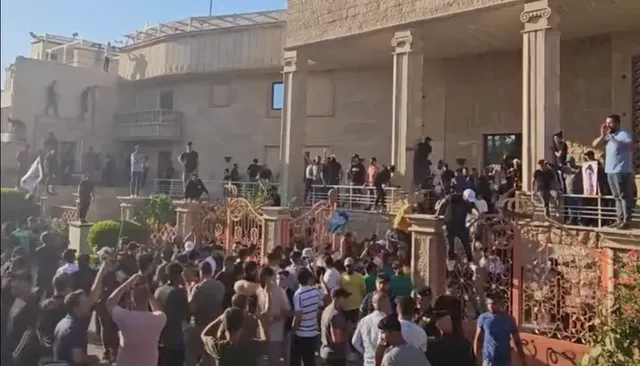Sweden has the highest percentage (35%) of people with immigrant background (born abroad or with one parent that immigrated) in Europe. Sweden is also the country that has taken most refugees per capita in Europe since 2012, most of them from the Middle East and northern Africa.
In the 70s, there were only 4 shootings per year in Sweden, and just 6% of the population had immigrant background, almost all of it from Finland. Currently, there is one criminal explosion every two days in Sweden, a level that is higher than war-affected countries like Syria, and 1 shooting per day since 2018, becoming the most dangerous country in Europe regarding gun crime. As for those shootings, 97% of them are committed by people with immigrant background.
These changes have produced tensions regarding integration and criminality. Unemployment rate among white ethnic Swedes is just 3%, whereas for people with immigrant background is 14%. Moreover, there are many neighborhoods around the big cities where 95% of the population do not speak Swedish natively, and unemployment there is 30%.
Additionally, Sweden is the country with the highest rate of Islamic fighters that left any European country to join ISIS between 2014 and 2019. Also, a terrorist attack was committed in 2017 by a pro-ISIS refugee from Uzbekistan in the center of Stockholm, resulting in tens of casualties.
This polarization and segregation has made Sweden the perfect target for anti-immigrant and anti-Islam discourse. A famous Islamophobic Danish politician with Swedish citizenship, named Rasmus Paludan, has been visiting the Muslim-majority suburbs in Stockholm, Gothenburg and Malmö to put on fire the Quran in the middle of public squares. This has sparked anger and numerous revolts from the Muslim immigrants against Swedish officials for allowing these acts to take place.
In January 2023, during very tense negotiations between Ankara and Stockholm over Sweden's accession into NATO, Rasmus Paludan went outside the Turkish Embassy in the Swedish capital and put again the Quran under fire. Besides breaking its band with Kurdish militias, Erdogan demanded that Sweden needed to stop these kinds of demonstrations in order to approve its entry into the US-led military organization.
Then, on 28th June, an Iraqi refugee in Sweden, named Salwan Momika, who is atheist and anti-Islamic, got the permission to organize a demonstration to burn the Quran in the biggest square of downtown Stockholm. The day after, the Swedish Embassy in Baghdad was stormed and diplomatic workers evacuated. Despite this, Erdogan finally agreed to let Sweden into NATO on July 11th.
One week later, Salwan Momika again got the permission to demonstrate, this time outside the Embassy of Iraq in Stockholm, and burned the Quran. After that, the reaction was even bigger than in June, as the Swedish Embassy in Baghdad was fully invaded by an angry mob and set fire on it, and Iraq decided to cut all diplomatic ties with Sweden.
Additionally, many Muslim countries have summoned Swedish ambassadors as a protest, and the Organization of Islamic Cooperation, which gathers 57 Muslim countries in the world, is holding emergency meetings to prepare a common response. Even more, the Supreme leader of Iran, Ali Khamenei, stated that "Sweden has taken a war stance against Muslims", as both Shia and Sunni extremist groups are encouraging Muslims all over the world to "find any Swede and kill them, because they are also a tool of the Jews".
The case of the burning of the Quran in Sweden is now considered as one of the most important paradigms regarding the limits of freedom of expression. Countries have different limits for it depending on their level of democracy, history and social conditions. Indeed, the US and Sweden have the strongest laws that protect individual rights in the constitution. But, how much is freedom of expression, and how much is incitement to violence?
For example, in the US there are no hate-speech laws, it is allowed to burn any national flag, holy books or declare in public that some people should be killed, but it is not allowed to put a clear date of when those killings should be perpetrated. In Sweden, it is more complicated: There are hate-speech laws targeting any group of people, but freedom of demonstration is even stronger than in the US; and there are no blasphemy laws, meaning that is allowed to burn or mock any religious symbols if this does not endanger the public order.
It is true that there seems to be a contradiction that Sweden has strict hate-speech laws towards any comment on Twitter for example, but it is allowed to burn the Quran outside the Embassy of Turkey or in the middle of the square where a majority of Muslims live. As it happens many times with these issues, it is more complicated than it seems at first, and the answer may lie in between several points of view.


















Comments